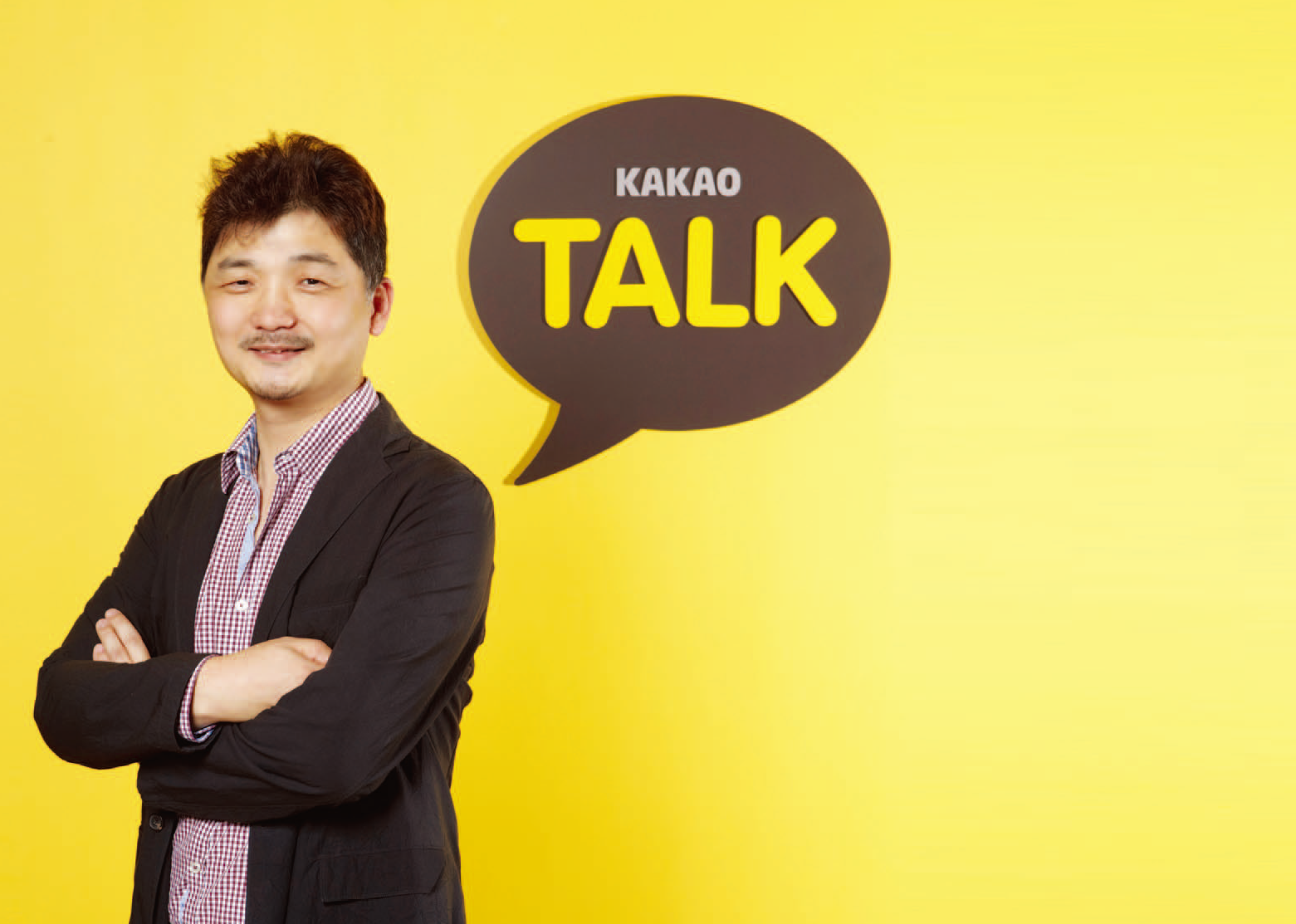Who Is Brian Kim - Richest Korean: Biography, Personal Life, Career, Family and Net Worth
 |
| Who Is Brian Kim: Early Life, Career, Family, Achievement |
Kim Beom-su (or Brian Kim), the founder of the company behind South Korea’s most popular messaging app KakaoTalk, is now the richest person in the country, according to the Bloomberg Billionaires Index on Friday.
Kim has seen his fortune reach $13.4 billion this year, surpassing Samsung Electronics Vice Chairman and de-facto leader Lee Jae-yong, whose net worth was estimated at $12.1 billion.
Kim’s assets grew by $6 billion in 2021 alone as Kakao shares soared 91 percent, boosted by the stock market debuts or debut plans of its several subsidiaries.
Latest Update (Feb.2022):
Shares of Brian Kim’s Kakao have tumbled 48% since June. Fortune Fall by $7 Billion After String of Scandals.
Kim’s fortune, now valued at $8 billion according to the Bloomberg index, is mainly based on a 24% stake he owns in Kakao directly and through K Cube Holdings, a holding company that is effectively structured as his family office.
Brian Kim: Early Life
 |
| Photo: Teahub |
Born to parents who did not study beyond elementary school, Mr Kim grew up in poverty. His family of eight shared one bedroom in a poor neighbourhood of Seoul as his parents moved from one job to another to make a living. He was the first of his family to go to college and paid his way through it by offering private tutoring.
“We had to create our own paths because my parents didn’t have time to take care of us,” recalls Mr Kim, in his modest office in Pangyo, a small city just south of Seoul where many IT companies are clustered. “A great degree of autonomy was given to us, which also taught me a sense of responsibility.”
Hardship made Mr Kim extremely driven. But it is hard to detect any trace of such struggle in him today. He cuts a relaxed figure with a goatee and in semi-casual attire: white dress shirt, a brown cardigan and navy jacket.
Brian Kim: Career
 |
| Photo: Getty Images |
His first job was developing an online communication service at Samsung’s IT services unit. But he left the company five years later to open an internet café and start developing online social casino games. Hangame has attracted huge traffic and was later merged with search engine Naver to become the country’s dominant web portal, NHN.
“In the early days, I was working day and night as a businessman and programmer. Then, I went to a sauna at dawn and burst into tears,” he says. “I was so proud of myself leading my own business but I was also afraid I might not be able to pay my staff.”
Since then, a long shower — sometimes up to an hour — has become a morning ritual and an opportunity to think. After heading NHN for five years, Mr Kim moved to Silicon Valley in 2005 to build the company’s gaming presence in the US. But it turned out to be tougher than expected and he stepped down in 2007. “A ship is the safest at a harbour but that’s not what it is made for,” he said in his resignation letter, explaining why he was leaving the security of NHN for another venture.
While he was racking his brains in California for new ideas there came the iPhone, which immediately mesmerised him. Mr Kim, with his new team mates, returned to Korea to develop apps for the iPhone, two years before it was introduced in the country.
In 2010, they launched KakaoTalk, which is now used by three quarters of South Korea’s 50m population. Last year, he merged Kakao with Daum Communications, Naver’s competitor, providing a larger balance sheet with which to move into new business lines such as mobile banking and taxi hailing.
This year, he surprised the industry by appointing Jimmy Rim, one of the country’s youngest CEOs, to control Kakao’s daily operations.
Of late, Mr Kim has been devoting more time to his personal ambition of developing 100 technology start-ups. He has already invested in more than 70 start-ups through his two venture capital firms to cultivate the country’s tech scene.
Business struggle
As the first generation of successful internet entrepreneurs like Mr Kim invest part of their wealth in start-ups, the funding environment for South Korean start-ups has improved in recent years, also backed by the government’s drive to foster ventures and ease the country’s economic reliance on chaebol. But smaller businesses still struggle to grow in the shadow of these sprawling companies.
Although South Korea can boast global manufacturers with vast international operations, expansion across the world has been a painful process for its IT service providers. Kakao has struggled to expand its user base beyond the home market, with limited overseas success. It acquired this year the shrunken US-based social network Path in an attempt to revive its push into Southeast Asia.
As well as challenges overseas, Kakao also has to cope with regulation at home. Last year, Kakao came under the spotlight for a public stand-off with the government, whose heightened surveillance of digital communication has sparked fears for online freedom. The company ended up bowing to state pressure in October, saying it would comply with prosecutors’ requests to monitor criminal suspects’ messages.
Some critics say the decision by Kakao to back down was made as a compromise to win government approval to set up the country’s first internet bank. Asked about any possible link, Mr Kim first looks perplexed. “Protecting users’ privacy remains our top priority but no company can ignore the country’s legal requirements,” he says defensively.
Along with government interference, the country’s rigid education system is also widely seen as a barrier to the development of the so-called creative economy. The country faces growing criticism that its focus on rote learning bodes ill for the future.
Brian Kim: Family
Mr Kim is one of the growing ranks of the South Korean elite that send their children abroad. His son is studying at a US university while his daughter had four years of home schooling.
Brian Kim: Net Worth
Over the past decade, Kakao has grown fast. As of Friday, Kakao and its two listed affiliates marked an aggregate market cap of 73 trillion won.
Kim, who now serves as the board chairman at Kakao, holds around 24 percent of Kakao’s shares, including the ones he owns through K Cube Holdings, Kim’s fully owned investment firm, according to a regulatory filing in May.
In February, he pledged to donate more than half of his assets. In the following month, he joined the Giving Pledge, a global campaign created by Bill and Melinda Gates and Warren Buffett for the world‘s wealthiest individuals to give back the majority of their wealth.
Kakao founder becomes richest person in S. KoreaKim Beom-su, the founder of the company behind South Korea’s most popular messaging app KakaoTalk, is now the richest person in the country, according to the Bloomberg Billionaires Index on Friday. Kim has seen his fortune reach $13.4 billion this year, surpassing Samsung Electronics Vice Chairman and de-facto leader Lee Jae-yong, whose net worth was estimated at $12.1 billion. Kim’s assets grew by $6 billion in 2021 alone as Kakao shares soared 91 percent, boosted by the stock market debuts or debut plans of its several subsidiaries. Bloomberg said that Kim’s case is an example of how self-made technology entrepreneurs are climbing the superrich list in South Korea, overtaking members of families that control the country’s decades-old conglomerates. Kim, 55, born as the third of five children in a poor family, grew up in a small one-bedroom apartment. His parents reportedly earned their living mainly through manual labor jobs and he was the only child who made his way into a university. After working five years at Samsung SDS, an IT services affiliate of Samsung Electronics, Kim opened a PC cafe and later founded an online game platform operator, Hangame Communications, which was eventually merged with search engine Naver to become the country’s dominant web portal, NHN. In 2010, Kim and his startup firm launched KakaoTalk, which soon became the country’s dominant messaging app. Over the past decade, Kakao has grown fast. As of Friday, Kakao and its two listed affiliates marked an aggregate market cap of 73 trillion won. Kim, who now serves as the board chairman at Kakao, holds around 24 percent of Kakao’s shares, including the ones he owns through K Cube Holdings, Kim’s fully owned investment firm, according to a regulatory filing in May. In February, he pledged to donate more than half of his assets. In the following month, he joined the Giving Pledge, a global campaign created by Bill and Melinda Gates and Warren Buffett for the world‘s wealthiest individuals to give back the majority of their wealth. |
 Who is Lori Harvey: Biography, Career, Relationship with Michael B. Jordan Who is Lori Harvey: Biography, Career, Relationship with Michael B. Jordan Michael B. Jordan is now in a relationship with 24-year-old model Lori Harvey. And naturally, the lovebirds have been posting several romantic pics with each ... |
 Who Is Pepper - First Robot That Can Read Emotions Who Is Pepper - First Robot That Can Read Emotions Softbank Group will stop making the robot "Pepper" after it companies decided to "fire" it for breaking down. Who is Pepper – the robot that ... |
 Who Is Sheryl Berkoff – Actor Rob Lowe's Wife: Biography, Job, Personal Life Who Is Sheryl Berkoff – Actor Rob Lowe's Wife: Biography, Job, Personal Life Love story between Sheryl Berkoff and Rob Lowe is the mascot of a long-lasting relationship in Hollywood. Who is Sheryl Berkoff? What special about their ... |
 Who is Love Island’s Andrea-Jane Bunker: Biography, Age, Job, Having Eye On Teddy Soares Who is Love Island’s Andrea-Jane Bunker: Biography, Age, Job, Having Eye On Teddy Soares Andrea-Jane Bunker is a new bombshell of Love Island. Who is she? What is her job? Who is she having her eye on? |


























